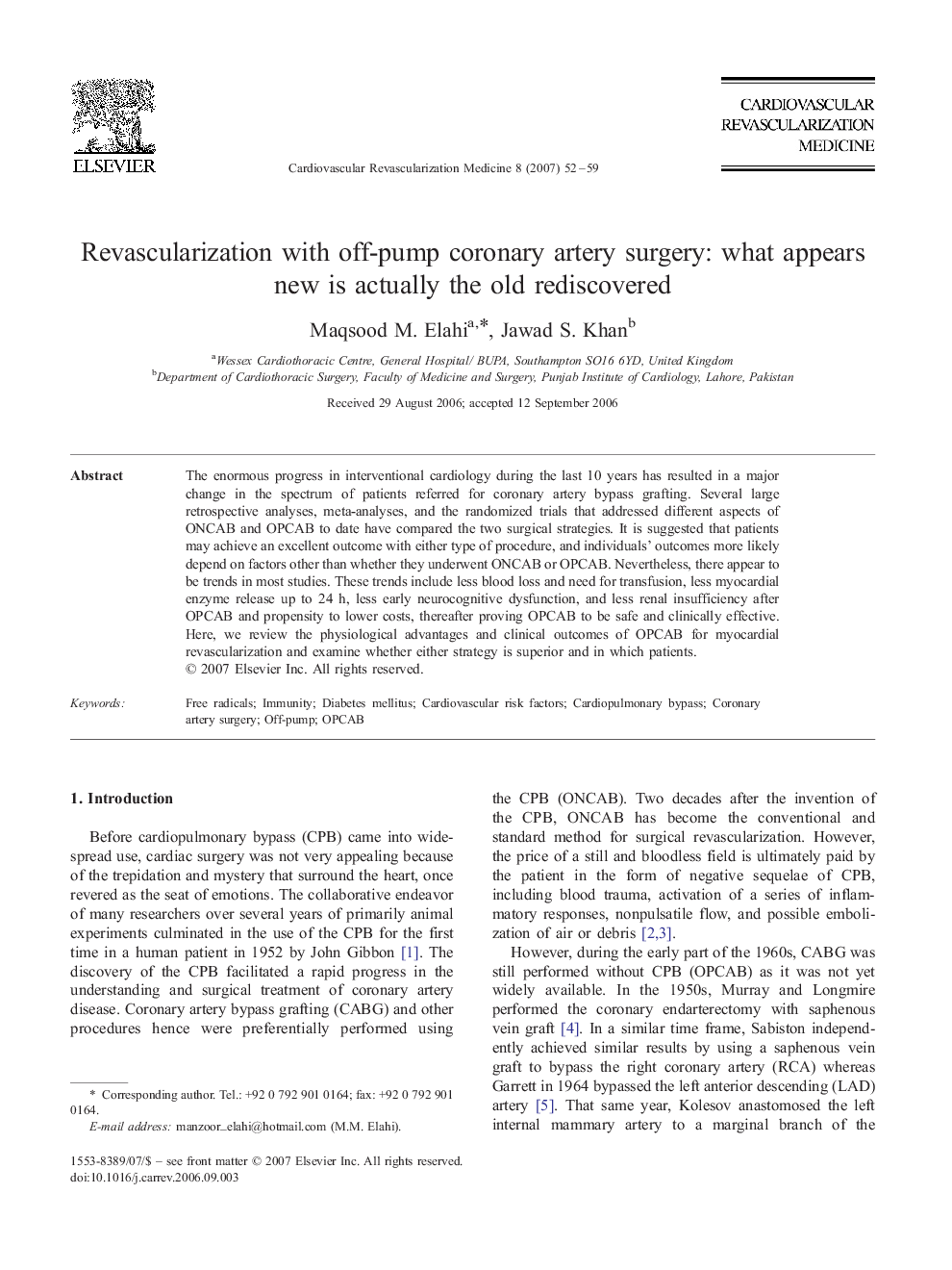| Article ID | Journal | Published Year | Pages | File Type |
|---|---|---|---|---|
| 2838155 | Cardiovascular Revascularization Medicine | 2007 | 8 Pages |
The enormous progress in interventional cardiology during the last 10 years has resulted in a major change in the spectrum of patients referred for coronary artery bypass grafting. Several large retrospective analyses, meta-analyses, and the randomized trials that addressed different aspects of ONCAB and OPCAB to date have compared the two surgical strategies. It is suggested that patients may achieve an excellent outcome with either type of procedure, and individuals' outcomes more likely depend on factors other than whether they underwent ONCAB or OPCAB. Nevertheless, there appear to be trends in most studies. These trends include less blood loss and need for transfusion, less myocardial enzyme release up to 24 h, less early neurocognitive dysfunction, and less renal insufficiency after OPCAB and propensity to lower costs, thereafter proving OPCAB to be safe and clinically effective. Here, we review the physiological advantages and clinical outcomes of OPCAB for myocardial revascularization and examine whether either strategy is superior and in which patients.
